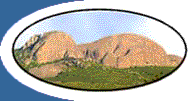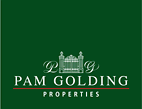Butcher with a nurturing spirit
2008-09-25
Prof Faadiel Essop
AS I ambled towards the gate outside his cottage, Osman Sonday warmly greeted me and extended a firm handshake. Physically he appeared in mint condition and I soon encountered his razor-sharp memory as he effortlessly rattled off names, places and dates of previous generations and events. I gently enquired about his age and learnt he was born in Paarl during 1923, thus making him the oldest living male member (84 years old) from within the Paarl Muslim community. He vividly relates that he is the son of Mohamed Yacoub Sonday who migrated from India (Dishwell district, 200 km from Mumbai) to initially settle in Cape Town, whereafter he moved to the Paarl area during 1908. His father married Louisa Benjamin (who embraced Islam and adopted the name of ‘Maryam’) during 1916 and together they raised six children. During 1930, the young Osman began attending the Paarl Muslim school and completed his schooling after finishing standard four (Grade 6). This was usually the ‘end of the line’ in terms of formal schooling available unless one was willing to enter Athlone Training College or could travel to Cape Town to further your studies. It struck me at the time that this was part of the prevailing system to ensure non-whites remain relatively unskilled, effectively translating into an abundant supply of ‘cheap labour’ for the job market. In addition, it deprived bright, young people such as Osman Sonday of the opportunity to reach their full potential. Thus at the tender age of 11 years began his long association with the business world, comprising a total of 57 years. He recalls: “My father had several businesses in Hof, Berg and Main Street and I had to help out from quite an early age.” During 1945 his father returned to Shirvidan, his home village in India, where he remained until he passed away. During 1950, Osman married Henrietta Cornelissen (who embraced Islam and adopted the name of ‘Hamida’) and together they raised six children. ‘’When did you move to your current residence?’’, I prodded. Again I could almost visualise his neuronal circuits retrieving the relevant data, processing it, and resulting in his speedy reply.., ‘’the Group Areas Act’’. ‘’During 1962 I had to move from our home in the town area to my current residence in Murray Street, Charleston Hill. This was all the result of the Group Areas Act…’’ he deeply reflected. ‘’In fact, the Group Areas Act was a sad time during which several of the community’s elders died, almost losing the will to carry on… just check the death records’’ he remembers. However, he indicated that one positive aspect of this dreaded legislation was that it allowed individuals to move into their own homes that they were able to purchase at a later stage. During 1965 he started a successful Muslim butchery in the Paarl East region which he managed until 1992. He subsequently retired after suffering a heart attack. He recollects that it was very difficult at the time for non-whites to do business in the meat trade since there were monopolies and a quota system in place. I asked him to highlight what stood out for him during his lifetime. I learnt that his basic philosophy is ‘’to put your Creator first and to always remember the efforts of your parents. The rest will then follow’’. He fondly reminisces about the time he went on pilgrimage (hajj) to Mecca. ‘’During 1970 I left for hajj by sea with the SA Oranje and spent a total of four months and ten days travelling,’’ he quipped. He visited several countries including England, Germany, Holland, Switzerland, Turkey, Lebanon and Syria. Interestingly, at the time the Suez Canal was blocked and not many pilgrims were able to enter Mecca to complete the Hajj. During his visit to Mecca pilgrims still performed their salah (prayers) on pebbles within the precincts of the Ka’bah. Also, they were busy working on the Bab Salam (one of doors leading to Ka’bah precincts) at the time. ‘’There are so many memories,’’ he said. He points out that meat is much more expensive today, i.e. in terms of value for money than during his time as a butcher. For example, at his butchery one could buy half a pound of meat for a mere 5 cents. He also describes scenes from the old Paarl town where most families lived quite closely to one another. Here families often kept livestock in their backyards that were slaughtered when required. “’These places were cleaned every Thursday and Friday before the inspector came along. However, it left quite a stench in the whole neighbourhood,’’ he recalls. I probed regarding his views about the future of the Paarl Muslim community. His nasihah (advice) is that the various regions within the broader Paarl Muslim community should be allowed to grow and develop in its own right. ‘’The town has expanded so much in terms of distance and this will continue when looking forward. “We should have each region equipped to function on its own for e.g. a madressah, masjid or prayer facility. Rather let people organise and manage themselves,’’ he advises. On my way out, he proudly shows me the exquisite range of plants he is cultivating on his porch, describing each one with precise detail. I suddenly grasped the deeper meaning of it all. Osman Sonday carefully nurturing his seedlings to bloom in its full glory in the future, while in parallel ‘’planting’’ seeds of historical information he has collected over the years. The whole idea being that future generations will be able to contemplate and learn from their past, while at the same time extracting valuable lessons that should ensure a flourishing and blossoming Paarl Muslim community.
More
News
|


